Your Cart is Empty
Free shipping on Orders $79+
Free shipping on Orders $79+
Explore

Top Hormones That Affect Weight Loss: Part 2 By Dr. Jason Dave
May 31, 2021 5 min read
Doctor’s Note
A new series featuring leading physicians who love plants as much as we do!
Welcome to Part 2 of this blog edition on top hormones that affect weight loss! If you haven’t done so already, please check out Part 1 here: Top Hormones That Affect Weight Loss: Part 1.
A symphony of factors control hunger, fullness, mood, energy levels and our weight. Also involved in the complex process are hormones, particularly the ones that are often referred to as hunger hormones.
In an ideal world, these hormones work together to help keep you at a healthy weight. In reality,70% of us end up as overweight or obese. Could these so-called hunger hormones be to blame?
To answer that question, you first have to understand how the hunger hormones work.
Let’s take a deeper dive into these hormones and how they affect our bodies.
1. Leptin
Also known as the “satiety hormone,” leptin sends your brain the signal that it’s time to stop eating. When leptin levels are low, your brain may not get this message. This can make it easier to eat too much and gain more weight. There is research that indicates that obesity can predispose a person to have lower leptin levels. In addition to lifestyle factors, inflammation and genetic factors can influence leptin levels as well.
What can you do about it?
- Avoid foods high in sugar and that are highly processed.
- Get more exercise. Plan to get at least 150 minutes of moderate-intensity or 75 minutes of high-intensity aerobic exercise each week.
- Increase intake of fiber rich in omega-3 fats, which is a good type of fat that keeps you feeling full. Rich sources include chia and flax seeds. You can find these two ingredients in our deliciousPineapple Chia Cleanse, which contain plenty of omega-3 fatty acids- over 3.5 grams per serving!
2. Ghrelin
Ghrelin does the opposite of what leptin does. When the stomach is empty, ghrelin levels increase and send a message to your brain to let it know it’s time to eat. Levels of ghrelin peak when your stomach is empty, and drop after you’ve just eaten.
What can you do about it?
- Eat complete protein with every main meal to fill fuller longer.
- High fiber foods stretch your stomach and balance your hunger hormones. Look for high fiber in juices likePineapple Chia Cleanse that have a high diversity of plant fibers to keep your hunger hormones in check.
- Get plenty of sleep! Try your best to get at least 7-8 hours of sleep each night.Lack of sleep has been found to trigger an unhealthy increase in ghrelin levels.
- Work with a fitness trainer to include strength training as part of your exercise routine. An increase in muscle mass helps to keep ghrelin at a healthy level.
3. Neuropeptide Y
Neuropeptide Y (NPY) is an important hormone that is found throughout your brain and nervous system. It is involved in a variety of physiological functions such as energy regulation, appetite control, blood pressure, and regulating chemicals in our brain. Stress and food deprivation can lead to higher levels of NPY, which can increase our desire for sweet and starchy foods (high in carbohydrates) and promote fat storage, especially in the belly area. When levels of NPY are low, it can lead to poor processing of negative emotions, fatigue, and depression.
What can you do about it?
- Practicing stress-reduction techniques such asbreathing exercises, meditating, listening to nature sounds, trying Qigong or even going for an outdoor walk can all help.
- Consume more probiotics to keep your gut from craving more carbohydrates.
- Increase protein intake, as low protein intake can increase levels of NPY. If you’re struggling to get more protein in your diet, try ourVegan Vanilla Proteini! It contains plenty of protein from organic superfoods to help you cut cravings and feel satisfied throughout the day! It also contains prebiotics to feed and nourish your beneficial gut bacteria.
- If you are fasting, do not go into prolonged food deprivation. If you want my opinion as a physician on intermittent fasting, check out the blogShould I Try Intermittent Fasting? By Dr. Jason Dave.
4. Testosterone
As we all know, testosterone is the male sex hormone- but it is also present in women in lower amounts. Testosterone levels typically decline as we age, but can also be due to other chronic health conditions (such as liver disease or alcoholism). Low testosterone can have many symptoms in both men and women such as increased weight gain, inflammation, decreased sex drive, thinner bones, less energy and a decline in mental health. High levels can also lead to weight gain, as well as insulin resistance. Eating a diet rich in refined carbohydrates and soy can affect the testosterone balance in your body.
What can you do about it?
- Increaseprotein intake throughout the day to help support healthy muscles.
- Add strength training as part of your exercise routine, which can help build muscle.
- If you are a man over 40 with low testosterone levels, talk to your doctor about testosterone replacement therapy.
As I’ve mentioned in the previous blog (Part 1), make sure you work with your doctor (in addition to the suggestions made above) so he or she can provide you with regular routine preventative screenings and annual physical exams. Apart from your usual routine annual blood work, notify your doctor if you have any other concerns mentioned above so he or she can order the appropriate blood test markers to further investigate them.
A great way to cover your bases to keep your hunger hormones in balance is with theCut Cravings Bundle, which contains both the high diversity of fiber and protein that you need to keep your hunger hormones in check every single day.
To your health,
Dr. Jason Dave
Doctor’s Note
A new series featuring leading physicians who love plants as much as we do!
For more SMART lifestyle tips like this, visit our other blogs at www.smartpressedjuice.com and follow us on Instagram or like us on Facebook. You can also visit our shop to stock up on our delicious juices.
Statements made on this website have not been evaluated by the U.S. Food and Drug Administration. Information provided by this website or this company is not a substitute for direct, individual medical treatment or advice. It is the responsibility of you and your healthcare providers to make all decisions regarding your health. We recommend that you consult with your healthcare providers regarding the diagnosis and treatment of any disease or condition. Products sold on this website are not intended to diagnose, treat, cure, or prevent any disease.
{"themeColor":"#574CD5","iconColor":"#574CD5","showLogo":true,"topBottomPosition":10,"rightLeftPosition":10,"iconSize":"small","iconCustomSize":64,"position":"bottom-left"}

